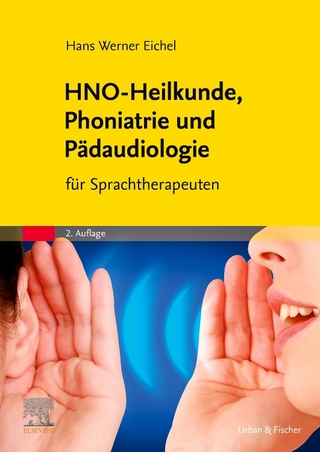
Educating Children with Velo-Cardio-Facial Syndrome, 22q11.2 Deletion Syndrome, and DiGeorge Syndrome
Plural Publishing Inc (Verlag)
978-1-63550-167-4 (ISBN)
- Titel z.Zt. nicht lieferbar
- Versandkostenfrei
- Auch auf Rechnung
- Artikel merken
The 22q11.2 Deletion Syndrome, also known as Velo Cardio Facial Syndrome and DiGeorge Syndrome, is relatively new. The genetic test to determine if a child has it has only been available since 1994. Educating Children with the 22q11.2 Deletion Syndrome, Velo Cardio Facial Syndrome and DiGeorge, Third Edition, effectively blends the thoughtful research that has transpired within the past 25 years with practical and current educational strategies to better meet the needs of children with the 22q11.2 Deletion Syndrome and other developmental disabilities. With its expanded content, as well as new contributions from some of the most highly regarded experts in the field, Educating Children with 22q11.2 Deletion Syndrome, Velo Cardio Facial Syndrome and DiGeorge Third Edition is an essential resource for teachers, parents, physicians, and therapists of children with this complicated learning profile.
To first address the scientific information that is needed to understand the syndrome and the implications of current research, expert contributors present the results of current studies involving brain abnormalities, language/learning profiles, medical needs, and psychiatric and behavioral difficulties. These valuable chapters are written in a reader-friendly manner to help parents, professionals, and teachers gain useful and necessary comprehension of the unique characteristics of the 22q population.
The second part of the book is a practical guide to educating a child with 22q from birth through adulthood. Divided into the various stages of development from preschool to adulthood, it includes information regarding the necessary tests special education teams should run, typical difficulties associated with learning, and changes that occur with ability as the child matures, as well as behavioral problems in the school setting.
New to the Third Edition:
*Addition of recent research studies since 2012
*Current research and treatment options for mental health issues
*Expanded and enhanced coverage of bullying and the social/emotional aspects of the syndrome
*Discussion on the possibility of cognitive decline and how to address this at school
*More information on Common Core State Standards and standardized testing for children with disabilities, including a section on understanding test scores
*Homeschooling and other placement alternatives, including an expanded discussion of post-high school options
*Executive functioning deficits, their impact in the classroom, and approaches to use
*Dealing with problem behaviors such as withdrawal and school refusal
*Cognitive remediation and new treatment strategies
*New math and reading remediation techniques
*New options for programming and post-secondary placements
Donna Cutler-Landsman, MS, is an educator with a master’s degree in counseling psychology who has spent over thirty-five years in the classroom teaching children in grades five through eight, and an advisor to the gifted and talented program in the Middleton Cross Plains Area School District in Wisconsin. In addition, she founded Cutler-Landsman Consulting, LLC and has served as a cooperating teacher with the School of Education, University of Wisconsin-Madison for fifteen years. Donna currently offers targeted special education advocacy for children with complex medical and learning needs from birth through adulthood. She is a past president of the VCFS Educational Foundation, serves on the 22q International Foundation board, and consults for the 22q Family Foundation and the VCFS Virtual Center. She is a popular speaker and advocate on issues related to the 22q11.2 Deletion Syndrome and education throughout the United States and abroad.
Preface
Acknowledgments
Contributors
Part I. Scientific Studies and Overview of the Syndrome
Chapter 1. Velo-Cardio-Facial Syndrome: Past, Present, and Future
Robert J. Shprintzen
Chapter 2. Introduction to Education and the Neurocognitive Profile
Donna Cutler-Landsman, Tony J. Simon, and Wendy Kates
Chapter 3. Cognition and the 22q11DS Brain: The Implications of Syndrome-Specific Deficits for School Performance
Joëlle van der Molen, Stephan Eliez, and Bronwyn Glaser
Chapter 4. Psychiatric Disorders and Treatment in 22q11.2 Deletion Syndrome
Lara Schwieger and Doron Gothelf
Chapter 5. Communication in Velo-Cardio-Facial Syndrome
Karen Golding-Kushner
Chapter 6. Childhood Illness in 22q11.2 Deletion Syndrome, VCFS and DiGeorge and Its Impact on School Attendance and Performance
Anne Marie Higgins and Donna Cutler-Landsman
Part II. Educational Interventions and Evaluation of Effective Practices
Donna Cutler-Landsman
Chapter 7. Evaluation of Educational Interventions
Chapter 8. Early Intervention for Infants and Toddlers
Chapter 9. Getting Ready for School: Preschool (Ages 3–5)
Chapter 10. Entering a Formal School Education Program
Chapter 11. Building the Foundation: Kindergarten Through Second Grade (Ages 5–7)
Chapter 12. Gaining Expertise: Upper Elementary Grades Three Through Five (Ages 8–11)
Chapter 13. Exploring New Horizons: Middle School (Ages 11–14)
Chapter 14. Choices and Future Goals: High School (Ages 14–18)
Chapter 15. Transition to Adulthood: A Model Program (Ages 18–21)
Appendix A. Accommodations
Appendix B. Teacher Awareness Questionnaire (Answers)
Appendix C. Exercises for Understanding
Appendix D. Interpreting Test Scores
Index
| Erscheinungsdatum | 10.05.2021 |
|---|---|
| Verlagsort | San Diego |
| Sprache | englisch |
| Maße | 178 x 254 mm |
| Themenwelt | Medizin / Pharmazie ► Gesundheitsfachberufe ► Logopädie |
| Sozialwissenschaften ► Pädagogik ► Sonder-, Heil- und Förderpädagogik | |
| ISBN-10 | 1-63550-167-9 / 1635501679 |
| ISBN-13 | 978-1-63550-167-4 / 9781635501674 |
| Zustand | Neuware |
| Haben Sie eine Frage zum Produkt? |
aus dem Bereich


